Embracing simplicity – when less is really more
I’m not sure if you’ve noticed, but it’s a bit crazy out there at the moment. The festive season is in full swing, and for most western cultures, this is a time of excess. Whether it’s food, beverages or gifts, we are surrounded by abundance wherever we look. For many people, it’s also a period of heightened anxiety. Ever wondered why?
Choices, choices everywhere; it’s exhausting. We’re told that we crave simplicity for nostalgic reasons, but physiologically there is so much more going on; and it can be paralysing in the cleaning and services industry.
The Paradox of Choice
Back in 2004, Barry Schwartz wrote the book The Paradox of Choice. The following year, he shared his work during a TED Talk at Oxford University. In his talk, Schwartz quoted the Association for Qualitative Research which summarises the paradox of choice as follows:
“In the modern world, we tend to think more choice is better, but there can be problems with excessive choice: Decisions become less likely and paralyses the ability to make a decision, possibly leading to choosing the easy option (default) or not making the decision at all. We may also be less satisfied with our choice and unsure we made the right choice. A famous study by psychologists Sheena Iyengar and Mark Lepper found that consumers were 10 times more likely to purchase a jar of gourmet jam when the number of jams on display was reduced from 24 to just 6”.
Embracing Simplicity
We often hear the term ‘work smarter, not harder’, and interestingly enough, this often appears as number one on the list of practical ways to simplify your life. Seriously, who doesn’t want this? At the end of the day we are all looking for the opportunity to have sustained results with minimum effort. Who wouldn’t want sustained results with minimum effort?
The ‘set and forget’ approach has long been a goal of the services and cleaning industry as a means to simplify labour and chemical intensive cleaning and maintenance. However, the results often fall far short of the required standard, risking increased customer dissatisfaction and likely subsequent loss of contracts. However, by embracing a simplified holistic approach, such as using a single biological cleaning solution in the place of many harmful chemicals, can an organisation return to a situation where using less produces more lasting results.
In 1978, designer Gillis Lundgren sketched a design on the back of a dinner napkin of a bookcase. Forty years later, the Billy Bookcase, an IKEA staple, continues to roll off the production line at a rate of 1 every 3 seconds. One in every 100 people in the entire world owns a Billy Bookcase. The design is simple, having not changed for 40-years. There are over 60 million of them out there; a testament to simple design, form and function.
New Year’s Resolution
As 2019 approaches, we owe it to ourselves to work smarter not harder. We owe it to ourselves that when confronted with so many choices, we don’t run with the ‘easy option’, and choose the ‘default’ product, because that is what we’ve always used. We owe it to ourselves to seek out the products that will provide us with sustained results with minimum effort.
Take the opportunity to draw breath, reassess how we do things. Look for simple design, form and function and all that we do.
Let the word for 2019 be: ‘simplify’.

 Previous Post
Previous Post Next Post
Next Post






